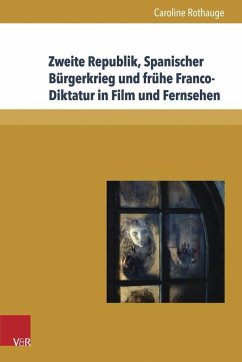Zwischen 1996 und 2011 gab es in Spanien intensive öffentliche Debatten über den Umgang mit der jüngeren Vergangenheit. In diesem erinnerungspolitischen Kampf um Deutungshoheit wurden populärkulturelle Kino- und TV-Produktionen mit zeithistorischem Sujet zu Multiplikatoren mit katalysatorischem Wirkungspotenzial. Sie konstruierten Vergangenheit aktiv von zeitgenössischen Prämissen aus und trugen so maßgeblich zur Konsolidierung bzw. Wandlung historischer Meistererzählungen bei. Umso drängender stellt sich die Frage, welche Geschichte darin wie inszeniert wurde. Dem widmet sich Caroline Rothauge aus einer erinnerungskulturellen Perspektive, die eine systematische Rückbindung der einzelnen Produktionen an ihren jeweiligen Entstehungskontext und Rezeptionszusammenhang einschließt. Ihre Ergebnisse zeigen, dass es unerlässlich ist, populärkulturelle Medienangebote zu berücksichtigen, will man die Pluralität, Prozesshaftigkeit und Dynamik heutiger Erinnerungskulturen verstehen.
A memory boom can be observed in Spain since 1996 in which film and TV productions serve to assimilate but also to update historical master narratives of recent history. Popular cinema and television productions with a historical subject matter actively construct the past starting off present beliefs, thus producing visions of reality which are characteristic of the very context they arose from. This study therefore focuses on the question what version of the Second Republic, the Spanish Civil War and Franco's dictatorship was represented in Spanish film and TV productions between 1996 and 2011. The sense such productions convey via specific modes of representations and narrative techniques is analysed considering their relationship to and their potential function in Spanish memory cultures. In so doing, Caroline Rothauge demonstrates that it is indispensable to consider popular media in order to understand the plurality, processual quality and the dynamics of today smemory cultures.
A memory boom can be observed in Spain since 1996 in which film and TV productions serve to assimilate but also to update historical master narratives of recent history. Popular cinema and television productions with a historical subject matter actively construct the past starting off present beliefs, thus producing visions of reality which are characteristic of the very context they arose from. This study therefore focuses on the question what version of the Second Republic, the Spanish Civil War and Franco's dictatorship was represented in Spanish film and TV productions between 1996 and 2011. The sense such productions convey via specific modes of representations and narrative techniques is analysed considering their relationship to and their potential function in Spanish memory cultures. In so doing, Caroline Rothauge demonstrates that it is indispensable to consider popular media in order to understand the plurality, processual quality and the dynamics of today smemory cultures.

